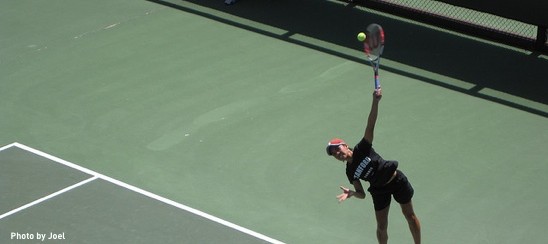Work Smarter, Not Harder
Often, we think if we work harder, we get better results. If you stay up late the night before a test, you’ll get a better grade. If you spend more time lifting weights, you’ll get stronger. If you live in the batting cage, you’ll hit better. If every waking moment is spent on the tennis court, you’ll achieve the perfect serve.
While it is generally true that good results are a product of work, the relationship between work and results is more nuanced.
Does hard work, in and of itself, pay off? Studies suggest the question is more complicated.
Surveys Say
In the classroom, studies have found no correlation between hours studied and grades earned. Meaning, the time spent studying was not the core indicator of learning. Working smartly to grasp principles and concepts gave a better indication of learning than the number of hours spent in the books.
When it comes to training, studies indicate that increasing work load can decrease average progression rate. If you overextend yourself in training, you won’t necessarily earn a big performance pay off.
So does this mean we should reduce our work, train less, and exude a laissez-faire attitude about practice? By no means!
How, Then, Shall We Work?
The important fact here is to work smarter, not harder.
As the studies have suggested, hard work does not necessitate good results. Consider an absurd example: if you study vigorously for a math test the night before a swim meet, don’t expect to swim faster. Your homework, no matter how much effort you put into it, has no relation to swimming. Work for work’s sake does not necessitate results.
Likewise, hard work in training does not necessitate improved performance. The muscle groups you work with and the exercises you engage in give you specific results that carry echoes throughout your body. If you try to increase bicep strength by lifting weights continuously, it will have ramifications across your functional body movement.
Most importantly, extending yourself too far in training could result in injury.
So think about why you are doing a certain exercise and how it will help your performance. This way, you’ll be able to evaluate the best exercises for your desired goals and understand the most efficient way to move during the exercise.
Define Your Purpose
Work does not exist for work’s sake. You train and exercise for a purpose. So, define your purpose! If you are working on improving your grades, diagnose the issues and orient your work toward strengthening those weak areas. If you want to get stronger, select the muscle groups in question and consider how any strength-and-conditioning work will influence the complete body system. If you want to hit a baseball better, review your mechanics and practice the specific areas that need improvement. If you want a sharper tennis serve, create the proper training regimen to impact your biomechanics.
The question is no about whether you should work; it’s how you should work. Work smarter, not harder.



